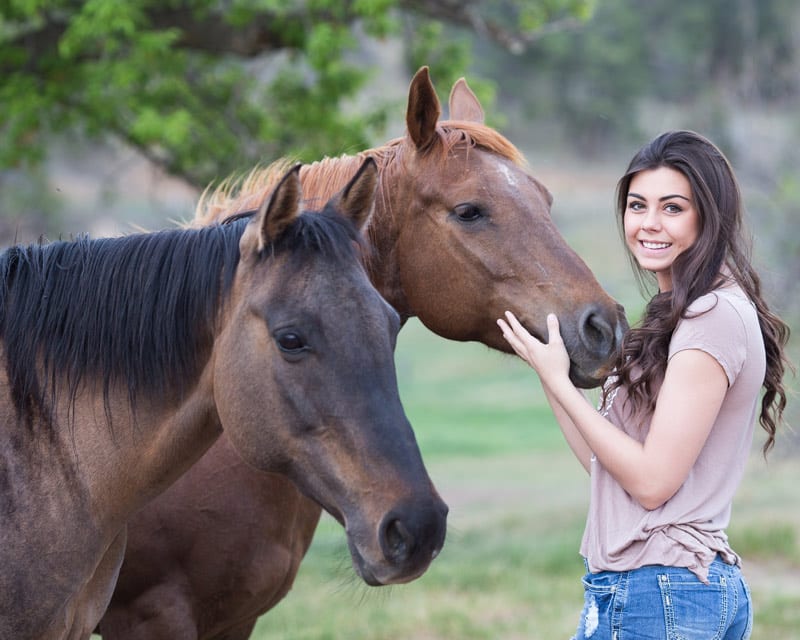Once patients treated for addiction leave rehabilitation, there is still a long road ahead. Recovering from an addiction is a long process with many challenges and set-backs. Individuals who have left a rehabilitation center still need support to stay on the straight and narrow path. Equine therapy is an effective tool that has benefitted some who are working to recover from addiction.
What is Equine Therapy?
Equine therapy is a treatment involving caring for and riding horses in order to aid patients in their rehabilitation process. There are many therapeutic benefits associated with riding and caring for horses, and equine therapy can be helpful to a variety of struggling patients, including those who struggle with addiction. Equine therapy often provides positive benefits that aid patients in the recovery process and help them navigate life after treatment.
Communication Skills
Equine therapy is very useful in helping recovering addicts improve their communication skills. Drug addiction can cause people to isolate themselves and avoid human interaction. Unsurprisingly, it can be difficult to recover these skills even after completing a treatment program. It can be hard for recovering addicts to establish new, positive relationships with people.
Through the use of equine therapy, these individuals can improve their communication skills by interacting with an animal. The patient and the horse will need to communicate, even though they don’t speak the same “language.” This exercise can help patients improve their communication skills with people in the future.
Impulse Control
There may be many instances in the recovery process where a recovering addict may face challenges involving impulse control. Horses are more responsive to non-verbal cues than humans, so it is important to remain calm and level headed while interacting with these animals. Through interaction with the horses, many patients learn to maintain a degree of self-control.
Stress Reduction
While in rehabilitation, patients are shielded from many of the difficulties of the outside world. Once it is time to leave, they may be met with a huge amount of responsibilities that seem too overwhelming to bear. This is one of the stressors that come with being a recovering addict. The recovery process can be an incredibly vulnerable time for patients. Many patients struggle to maintain their sobriety, all while attempting to rebuild their lives and to repair and create positive relationships. These challenges would be stressful for people in recovery. Getting outside and riding a horse can be just the stress reliever they need. A peaceful horse ride can allow them to clear their head, if even for a moment.
Positive Work Ethic
As majestic as they may be, horses, like all domesticated animals, can require quite a bit of effort to care for. They need to be fed, groomed, and otherwise tended to, much like other responsibilities in life. For this reason, equine therapy can help recovering addicts build a positive work ethic. Many of the skills that they acquire while caring for a horse could easily be transferrable to patients’ careers or families. Caring for a horse can remind them that even unpleasant tasks, like waking up early or getting your hands dirty, are important.
Identifying and Coping with Feelings
Substance abuse can make a struggling addict feel numb and detached from the world. During rehabilitation, the patient may begin processing these feelings, but the task is not completed when the recovery program ends. It can be difficult for a recovering addict to work through uncomfortable emotions for years to come. Equine therapy can be especially helpful in this sense because horses are acutely aware of human emotion, and they will react accordingly. If a person seems angry, the horse will likely mirror this behavior. This insight can provide a level of self-awareness for a patient.
Increase Self-Esteem
Struggling with addiction can take a toll on a person’s self-esteem. Given society’s harsh judgment, often due to misunderstanding, many recovering addicts may internalize some of the criticism that they hear. This can create an environment that can contribute to a potential relapse.
One of the most beneficial aspects of equine therapy is the connection formed between the patient and the horse. Horses meet patients without any pretense or judgment. If a person is kind and affectionate towards them, they will probably grow to love the person. This can mean a lot to people who may feel like outcasts due to their struggles with addiction. Knowing that an otherwise helpless animal appreciates and trusts them with its life can remind struggling patients of just how valuable they are.
If you or someone you know experiences mental health issues, it is important to seek help from a qualified professional. Our Resource Specialist can help you find expert mental health resources to recover in your community. Contact us now for more information on this free service to our users.
Author Bio: Kelsey Hawkins is a contributing writer and media specialist for Nexus Recovery Services. She regularly produces content for a variety of informational and lifestyle blogs.
https://nexusrecoveryservices.com/blog/
Image by Lorri Lang from Pixabay
The opinions and views expressed in this guest blog do not necessarily reflect those of www.rtor.org or its sponsor, Laurel House, Inc. The author and www.rtor.org have no affiliations with any products or services mentioned in this article or linked to herein.
Recommended for You
- How a Health Cleanse Can Reset Your Body and Mind - April 16, 2025
- The Truth about Relapse in Addiction Recovery - April 14, 2025
- The Power of Peer Support in Mental Health Recovery - April 10, 2025





